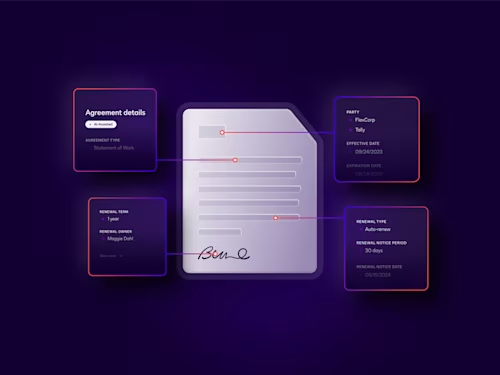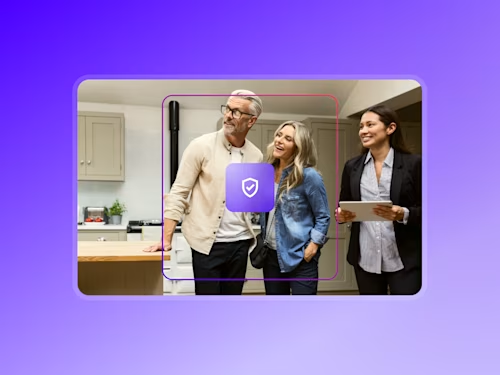
A Secure Ecosystem Built on Trust
Sharing our concept of trust and security and how to build trust in your ecosystem.

There’s never been a better time to consider the importance of security—and the outsized role that trust plays in it. While organizations of all sizes are now prioritizing security, rapid digital transformation, cloud adoption and hybrid/remote workforces have left many unprepared for persistent and increasing cyber threats.
If your company is like most, it’s part of a much larger ecosystem of employees, partners, vendors, and customers with unique security approaches and requirements. Unfortunately, your security is only as strong as the weakest part of that ecosystem.
There are many tangible technologies and tools to help address these challenges. But don’t overlook an intangible essential: trust, built on transparent and honest communication between people.
Trust and security
It’s essential to differentiate trust from security. The latter concerns the prescriptive and protective actions we take, like implementing two-factor authentication or requiring a badge swipe to enter secure areas.
Although you can’t touch or see trust, it’s certainly more than just a feeling. Trust forms the basis of all our relationships and is behind every agreement, transaction and ecosystem. We’re in the people business first and foremost. Without trust, it’s incredibly difficult to be successful.
Trust creates an ever-changing dynamic between people. And it takes work to keep it growing. Indeed, acting in bad faith is one of the many ways to damage that relationship. But what builds trust?
Honesty. Transparency. Integrity. Humility. Competency. The list goes on, but these qualities are at the core of trust. It’s about making promises, acting with noble intentions and following through on them. And, perhaps most importantly, it’s about admitting when you’ve made an error and then working to correct it and learn from it.
Trust and trusting relationships aren’t just relevant for personal matters. It’s critical that your company—and more specifically, you—commit to building trust in all your professional relationships: with employees, vendors, partners, patients, students, constituents, customers and everyone else.
Security is the driver. Trust is the differentiator.
From boardrooms to breakouts, security is a hot topic. No company is completely inoculated against constant and malicious threats. And it’s never been easier for bad actors to launch increasingly sophisticated cyber attacks.
Thankfully, there’s plenty of opportunity amid these security concerns. Security is only the beginning of the conversation, and it’s not exclusively an external issue. To reach—and sustain—a truly secure ecosystem, you need all hands on deck.
Your company’s solid foundation forms the basis for your robust security portfolio. Start on the inside and work your way out. Establish a culture of transparency and trust with employees, then move to partners and vendors.
Every person in your ecosystem is responsible for its overall health and security. Leaders must be accountable for showing how each person’s actions can positively or negatively impact that end goal. Select vendors and partners who share these same values, and customers will select you.
Assess risk and build trust in your ecosystem
Trust is a two-way street. Given all the different players in your ecosystem—and the sensitive information shared between them—you need to trust that each of them takes security as seriously as you do. Nurturing trust in these relationships requires transparent and honest communication.
You still need a well-documented and ongoing evaluation system for your ecosystem vendors, but building trust goes beyond data. The human element is more important for this relationship than the numbers.
Three tips for building trust within your ecosystem
First and foremost, you have to know where each of your vendors stands on security. For that to happen, they have to be willing to share their current posture, including where they may have vulnerabilities. Set the tone by sharing everything about your security situation. Transparency strengthens the bonds of trust within the ecosystem and improves its overall security posture.
Make it a point to know your vendors’ names, what they’re responsible for, and their strengths and weaknesses. When something inevitably goes wrong, you’ll already have a personal relationship established. It’s much easier to work through challenges collaboratively when that’s the case. And coming through adversity together breeds familiarity and builds trust.
Combine real-time intelligence tools with the soft skills of relationship building to rank each of your vendors. Spend more time educating those struggling to deliver, and consider interconnecting your vendor community for knowledge sharing when it makes sense.
Ultimately, trust is about people. It’s built not just on what you do, but on who you are while you’re doing it. That’s a true competitive differentiator.
Learn more at the Docusign Trust Center.
Related posts
Docusign IAM is the agreement platform your business needs


